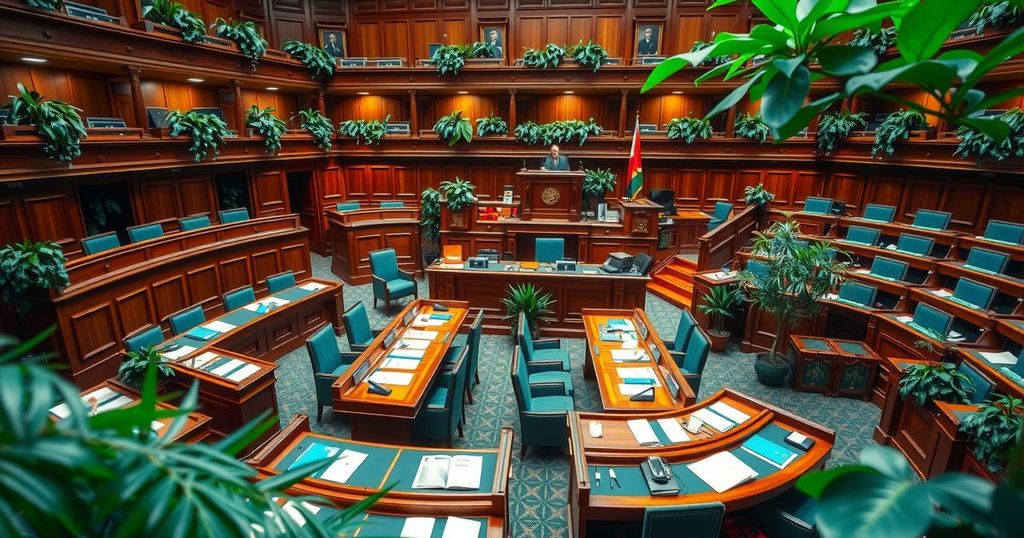NPP Struggles to Define Opposition Role Amid Parliamentary Success

A recent evaluation highlights the NPP’s parliamentary success but reveals significant weaknesses in policy formulation and public engagement. With a score of 80% for legislative oversight and only 30% for policy alternatives, concerns grow over its opposition strategy and relevance leading to the 2028 elections.
The New Patriotic Party (NPP) is facing difficulties in clearly defining its role as an opposition party, according to a recent academic evaluation. This report from the Ghana Academic Professional Forum highlights that while the NPP’s parliamentary caucus is impressive—with a legislative oversight score of 80%—the party as a whole is lagging, scoring a mere 30% in creating effective policy alternatives. This disparity raises questions about the overall effectiveness of the party in opposition.
Dr. Frank Bannor from the Ghana Institute of Management and Public Administration shared detailed findings that indicate the NPP scores poorly in several key areas. Out of seven performance categories assessed, the party fell below 50% in six, including crucial aspects like public engagement and grassroots mobilization. “The Minority’s vigor in Parliament contrasts sharply with the party’s silence on national issues,” Bannor noted. His comments underscore concerns about the lack of visibility from senior party officials at significant political events.
The report emphasizes that the NPP has yet to establish shadow ministries or communicate clear policy frameworks, notably five months after its exit from government roles. Such deficiencies are creating worry about its ability to effectively challenge the ruling party and address national concerns. Analysts have pointed out that these shortcomings could expose deeper organizational issues within the NPP, suggesting the party needs to reclaim its relevance beyond mere legislative performance.
As the political landscape evolves in Ghana, this evaluation sets critical benchmarks for opposition parties. It could have significant consequences for the NPP’s strategy as it gears up for the forthcoming 2028 elections. What remains clear is the necessity for the NPP to adapt and develop more robust engagement with the public and political processes to strengthen its position for the future.
In summary, the NPP’s self-evaluation as it navigates opposition dynamics reveals significant weaknesses in policy development and public engagement, despite a strong presence in Parliament. The assessment indicates the party’s need for improvement to enhance its organizational effectiveness and to remain relevant leading into future elections. As the political climate continues to shift, the NPP faces mounting pressure to refine its strategies.
Original Source: www.newsghana.com.gh







